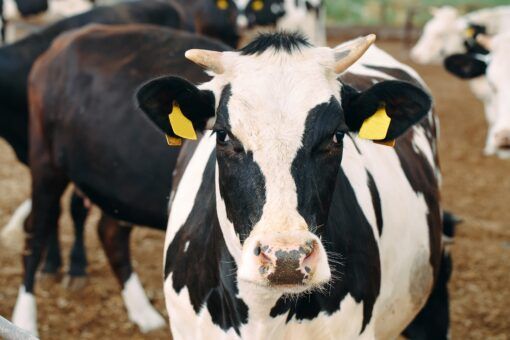
Genome editing is the precise, targeted alteration of a DNA sequence in a living cell. In farmed animal breeding it could be used to produce animals with certain traits, for example, animals that are resistant to some viruses. Genome editing could mean that desired traits in farmed animals are achieved more quickly than through traditional breeding methods.
The new public dialogue was commissioned by the Biotechnology and Biological Sciences Research Council (BBSRC) and the Nuffield Council on Bioethics, with support from UK Research and Innovation (UKRI)’s Sciencewise programme.
Participants in the dialogue discussed the potential benefits and concerns around the use of genome editing to address some major challenges within our food and farming system, such as animal diseases, environmental impacts and food security.
These considerations are especially relevant in relation to the Genetic Technology (Precision Breeding) Bill currently going through Parliament, which the Government says will ‘introduce simpler regulatory measures to enable these products to be authorised and brought to market more easily.’
The findings of the public dialogue offer an important contribution to the debate around precision breeding, broadening it out to questions of the aims, purpose and societal consequences of innovations that it will permit.
Overall, participants felt that the public could provide a valuable input into the policy process and that there should be an opportunity for wider public debate to help direct research and innovation in this area.
Participants also expressed a need for more clarity on the Government’s overarching plan for the future of food and farming in order to understand how genome editing would fit into it. They want to better understand the purposes for which precision breeding might be used, its impacts and wider consequences, as well as what the alternatives are, in order to assess its potential value more accurately.
In particular, participants were concerned that applications of genome editing should be aimed at supporting animal welfare and directed towards outcomes that promote the public interest, rather than merely the interests of commercial producers. Regulation was felt to be an important part of this.
Participants raised questions about how long-term impacts of genome editing in farmed animal breeding would be monitored and understood and were keen to see this factored into regulation.
Participants also expressed a desire for policy makers to consider promoting alternative approaches to addressing food and farming challenges, rather than automatically privileging new technological solutions such as genome editing.
Professor Melanie Welham, Executive Chair, BBSRC, said:
“The UK has renowned expertise in animal bioscience and as the main public funder in the UK, BBSRC plays a pivotal role in ensuring that research and policy in this area is well-informed by a broad range of views and perspectives. BBSRC welcomed the opportunity to work alongside Nuffield Council on Bioethics and Sciencewise to support this crucial public dialogue – a dialogue that not only helps to inform future policy decisions, but that also offers a valuable contribution towards the future development of a world-leading regulatory system.”
Danielle Hamm, Director, Nuffield Council on Bioethics, said:
“With the Genetic Technology (Precision Breeding) Bill currently going through Parliament, this is a crucial moment for policy makers to listen to the important public perspectives that have emerged during this dialogue. We are pleased to have worked with BBSRC and Sciencewise to create this opportunity for the public to deliberate. It has demonstrated their appetite for dialogue and ability to get to grips with this subject matter. We trust that policy makers will engage with this dialogue to help shape regulatory pathways and direct the development of genome editing in agriculture towards ethically acceptable outcomes.“
Tom Saunders, Head of Public Engagement, UKRI, said:
“Public dialogue helps ensure that policy and research is informed by a wide range of voices and recognises the public as a major stakeholder. Like other Sciencewise dialogues on emerging science and technologies, this project has enabled members of the public to engage with specialists, other stakeholders and each other on how the UK can proceed in this area in a way that aligns with the values and interests of wider society.”
The report of the dialogue is available to download here.